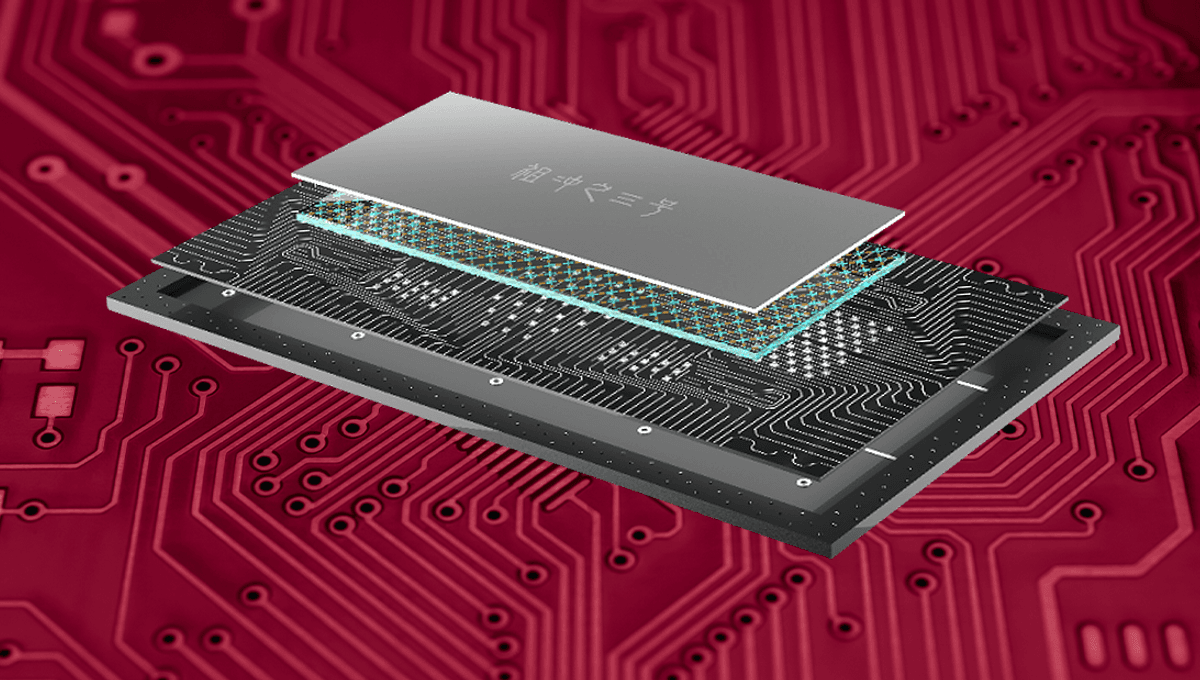
Quantum computers hold the promise to revolutionize modeling and calculations. By employing the peculiar laws of quantum mechanics, they can perform calculations that would take even the fastest supercomputers billions of years to complete. Building and operating quantum computers has many challenges, and while these devices are still a long way off, some components are already breaking records.
ADVERTISEMENT
For a few years now, different organizations and private companies have been announcing “Quantum supremacy”, the ability for a quantum processor to do a calculation faster than a regular supercomputer would. The latest claimant to this record is the Zuchongzhi-3, a superconducting quantum computing prototype made of 105 qubits – the quantum equivalent of regular computer bits.
As a comparison, what is now the second most powerful supercomputer, Frontier, would take almost 6 billion years to do what Zuchongzhi-3 can do in a few minutes, the Chinese researchers said. The most powerful supercomputer, El Capitan, only went online recently, so if it can shave time off that is yet to be seen.
The task at hand is called Random Circuit Sampling (RCS), a well-established (although occasionally controversial) quantum computing benchmark that has no specific application. Basically, the processor generates random quantum circuits and evaluates their outputs, something that quantum computers do much better than regular computers.
“To evaluate its capabilities, the team conducted an 83-qubit, 32-layer random circuit sampling task on the system. Compared to the current optimal classical algorithm, the computational speed surpasses that of the world’s most powerful supercomputer by 15 orders of magnitude,” a statement from the University of Science and Technology of China said. “Additionally, it outperforms the latest results published by Google in October of last year by 6 orders of magnitude, establishing the strongest quantum computational advantage in the superconducting system to date.”
If the numbers are confirmed, it means that Zuchongzhi-3 is 2 million billion times faster at RCS than Frontier and about 1 million times faster than Google’s Sycamore. This new chip doesn’t appear to be faster than Google’s Willow; based on a press release from the Mountain View company, Willow is 10 billion times faster than Zuchongzhi-3.
ADVERTISEMENT
These processors can do some interesting things, but they are not the quantum computers that will change everything. Based on our current knowledge, technology, and methods, there is still a lack of practical uses for the quantum processors that are around. In fact, last year Google launched a global competition offering $5 million to find a practical use for quantum computers. However, an interesting application was showcased a few weeks ago when a quantum device was used to simulate a simplified version of a possible end of the universe. You do need a quantum computer for that.
The study is published in the journal Physical Review Letters.
Source Link: Chinese Quantum Computer Prototype Is Million Billion Times Faster Than Best Supercomputer